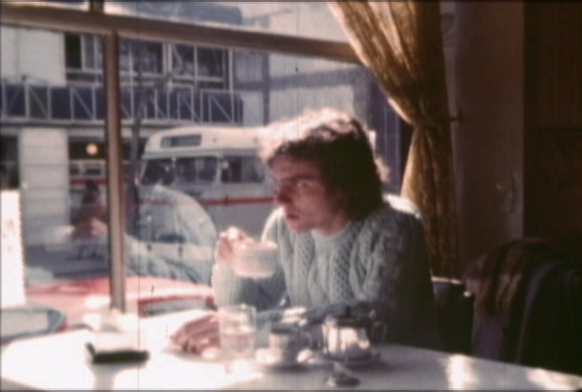INVERNO (Winter)
Director: Carlos Gerbase
Written by: Carlos Gerbase
Cinematographer: Roberto Henkin
Art Directors: Marta Biavaschi and Luciana Tomasi
Production Coordinator: Luciana Tomasi
Editor: Giba Assis Brasil
Assistant Directors: Giba Assis Brasil and Alex Sernambi
Distribution: Casa de Cinema PoA
Main Cast:
Werner Schünemann (the hero)
Luciene Adami (Mariana)
Marta Biavaschi (Lúcia)
Marco Antônio Sorio (Milton)
Cleide Fayad (Cláudia)
Luciana Tomasi (Isabel)
Prizes
- 7th Gramado Super-8 Film Festival Nacional de Cinema Super-8, Gramado, 1983:
Best Film.
Reviews
"Essentially a psychological drama" which in itself is a daring thing to do, not only in terms of Super-8 films, but also in terms of Brazilian cinema - WINTER has a dramatic structure that surprises the viewer who is used to the colloquial tone of their previous films. (...) Gerbase turns Porto Alegre into his own Manhattan, in a poetic chronicle that accompanies the main character’s feelings. (...) The memory of happiness takes you to a different setting - Montevideo - just as cold, but simultaneously close and distant (in scenes of rare sensibility, in the beautiful communion of images and words)."
(Régis Müller, CORREIO DO POVO, Porto Alegre, 29/04/83)
"The cinema of Rio Grande do Sul has in WINTER its best production yet. Coupling narrative fluidity with a flawless use of the resources of time and memory, Gerbase constructs a film that speaks to all audiences. The young journalist (...) is not an unusual type. He is one of the survivors of the seventies, a man who is frightened at the lack of perspectives of his times. (...) It is not without reason that the group of friends is torn between Milton’s (Marco Antônio Sório) nihilism and Lúcia’s (Marta Biavaschi) indecision. All of them take detours, casual ways out of that moment. Carlos Gerbase proves to be the most intellectual of the filmmakers of Rio Grande do Sul."
(Júlio Ricardo da Rosa, ZERO HORA, Porto Alegre, 05/05/83)
24/03/1983








